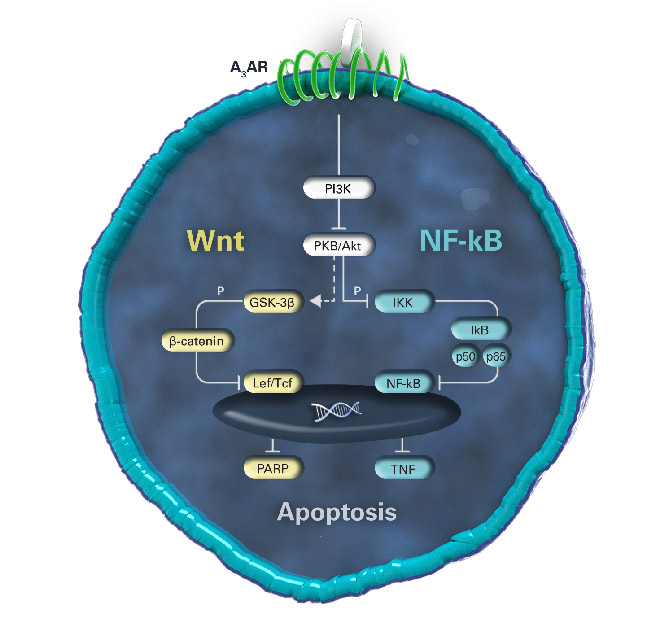The Company's technology platform is based on the finding that the Gi protein coupled A3 adenosine receptor (A3AR) is highly expressed in inflammatory and cancer cells whereas low expression is found in normal body cells.

High A3AR expression levels are also found in peripheral blood mononuclear cells (PBMCs) of patients with inflammatory and cancer diseases, reflecting A3AR expression in the pathological remote sites.

Targeting the receptor with synthetic and highly selective A3AR agonists, such as Can-Fite's compounds Piclidenoson and Namodenoson, induces anti-inflammatory and anti-cancer effects.
The Company's research further suggests that A3AR mediates a differential effect on pathological and normal cells. While specific A3AR agonists such as Piclidenoson and Namodenoson induce apoptosis of inflammatory and cancer cells, normal cells are refractory to the effects of the drug. This differential effect attributes to the safety profile of the A3AR agonists.
In addition, the receptor is suggested as a biological marker based on human clinical data showing that high receptor expression at baseline predicts improved patient response to treatment.
MECHANISM OF ACTION
The mechanism of action mediated via the A3AR includes modulation of key signaling proteins such as PI3K, GSK-3 , PKA, PKB/Akt, IKK, and NF-kB, resulting in de-regulation of the Wnt and the NF-kB pathways. Consequently, apoptosis of cancer and inflammatory cells takes place.
An additional drug candidate in the Company's pipeline is an allosteric modulator, CF602, an orally bioavailable small molecule which enhances the affinity of the natural ligand adenosine to its A3AR in specific areas where adenosine levels are increased. Normal body cells and tissues are refractory to the allosteric modulators. This approach is complementary to the basic platform technology of Can-Fite utilizing the Gi coupled protein A3AR as a potent target in inflammatory diseases

